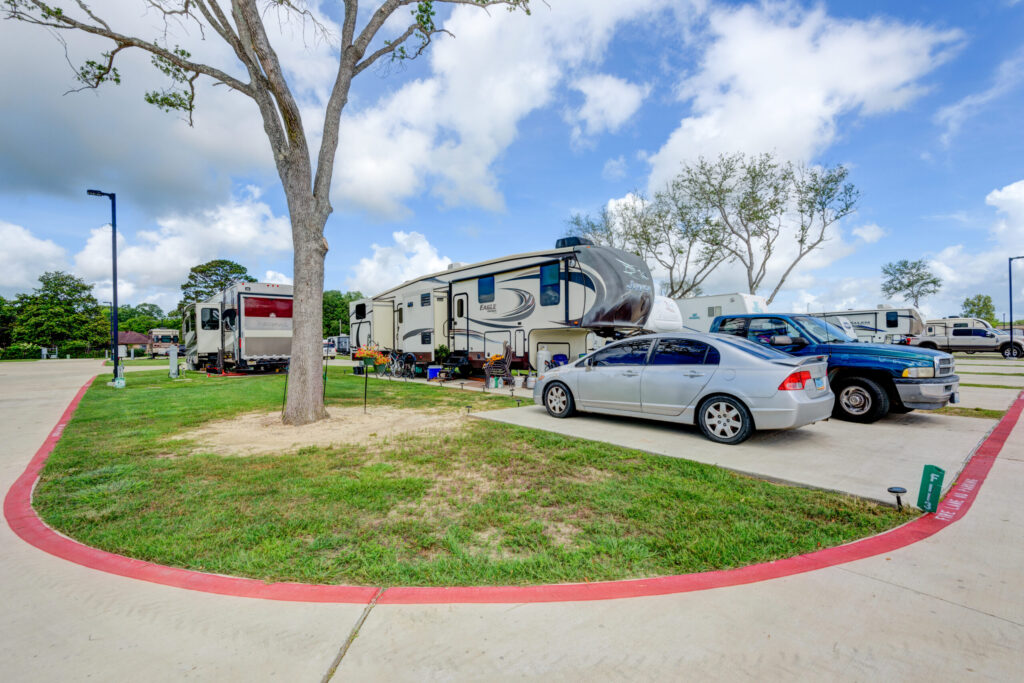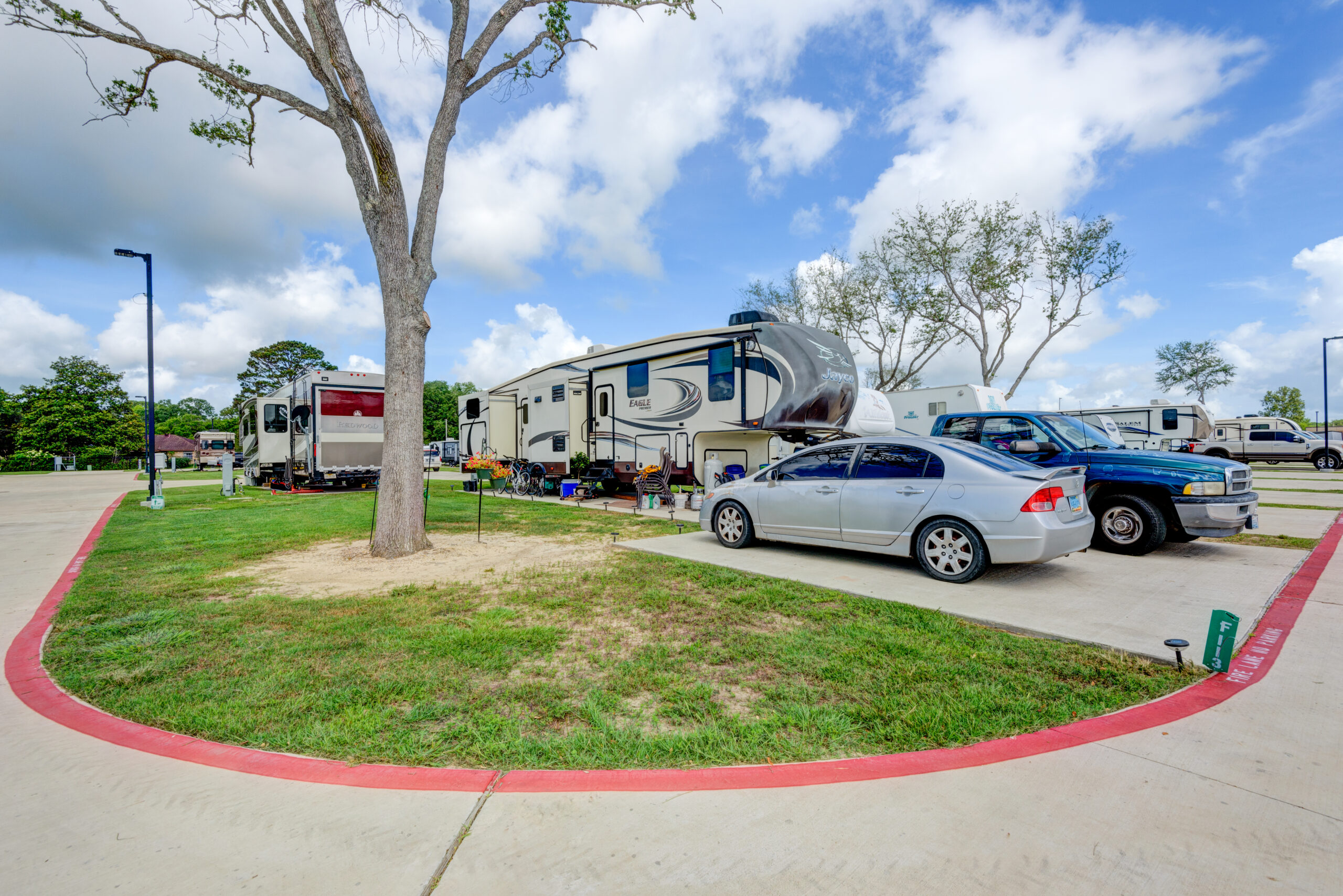
Unlock the Secret to Odor-Free RV Living: A Comprehensive Guide
The allure of the open road, the freedom to roam, and the cozy comfort of your home on wheels – RV living offers a unique and appealing lifestyle. However, a persistent challenge can quickly transform this dream into a less-than-pleasant experience: odors. From the lingering smells of cooking to the unpleasantness of holding tanks, maintaining a fresh-smelling RV is crucial for a comfortable and enjoyable journey. This guide, meticulously researched and fact-checked, provides a comprehensive roadmap to achieving and maintaining an odor-free RV living environment.
The Root of the Problem: Understanding RV Odors
Before we delve into solutions, it’s essential to understand the common sources of odors in recreational vehicles. Identifying the culprits is the first step towards effective odor control. The primary offenders include:
- Holding Tanks: Black water (sewage) tanks and gray water (sinks, showers) tanks are notorious for producing foul smells. The decomposition of organic waste creates gases like hydrogen sulfide, which is responsible for the characteristic rotten egg smell.
- Kitchen Areas: Food spills, improper food storage, and the disposal of food waste can lead to unpleasant odors. Grease buildup in the kitchen can also contribute significantly to the problem.
- Bathrooms: Similar to holding tanks, bathroom waste can create unpleasant smells. Poor ventilation and moisture can exacerbate the issue, leading to mold and mildew growth.
- HVAC Systems: Air conditioning and heating systems can trap odors and circulate them throughout the RV if not properly maintained. Dust, mold, and mildew can accumulate in the ductwork.
- General Living Areas: Spills, pet odors, and the accumulation of dust and dirt can all contribute to a less-than-fresh environment.
Holding Tank Harmony: Tackling the Toughest Odor Source
The holding tanks are often the primary source of odor-free RV living challenges. Effective tank management is therefore paramount. Here’s how to keep your tanks smelling fresh:
- Use the Right Chemicals: Choose tank treatment chemicals specifically designed for RV use. These products typically contain enzymes or bacteria that break down waste and reduce odor-causing gases. Follow the manufacturer’s instructions carefully. Avoid using harsh chemicals like bleach, as they can damage your tank seals and disrupt the beneficial bacteria.
- Proper Flushing: Always flush your black water tank thoroughly after emptying it. Use a tank flusher or a dedicated wand to remove solid waste and debris.
- Water is Your Friend: Ensure you have adequate water in your tanks. Sufficient water helps to dilute waste and prevents solids from accumulating and contributing to odors.
- Regular Maintenance: Inspect your tanks regularly for leaks or damage. Replace seals as needed. Consider a tank sensor to monitor fill levels and prevent overflows, which can lead to significant odor problems.
- Consider a Tank Vent: A roof vent can help to release gases and improve ventilation.
Kitchen Cleanliness: Preventing Food-Related Odors
The kitchen is another area where odors can quickly become problematic. Vigilance and proactive cleaning are essential for odor-free RV living in the kitchen. Implement these strategies:
- Prompt Spill Cleanup: Clean up spills immediately. Food spills left unattended can quickly attract pests and create unpleasant smells.
- Proper Food Storage: Store food properly in airtight containers to prevent odors from escaping. Regularly check your refrigerator for expired or spoiled food.
- Waste Disposal: Dispose of food waste promptly and properly. Use a trash can with a tight-fitting lid and empty it frequently. Consider using a compost bin if you have the space and the inclination.
- Grease Management: Clean up grease buildup regularly. Grease can trap food particles and contribute to unpleasant odors. Clean your stovetop, oven, and range hood thoroughly.
- Ventilation: Use your range hood fan while cooking to remove cooking odors. Open windows to improve ventilation.
Bathroom Bliss: Maintaining a Fresh and Clean Space
The bathroom, with its inherent moisture and waste, requires special attention for odor-free RV living. Here’s how to keep your bathroom smelling fresh:
- Ventilation is Key: Use your bathroom vent fan during and after showers and after using the toilet. Open windows when possible to improve ventilation and reduce moisture.
- Regular Cleaning: Clean your toilet, sink, and shower regularly with appropriate cleaning products.
- Minimize Moisture: Wipe down surfaces after showering to prevent mildew growth. Consider using a dehumidifier if you live in a humid climate.
- Toilet Hygiene: Use RV-specific toilet paper that breaks down easily. Avoid flushing anything other than toilet paper.
- Odor Absorbers: Place odor absorbers like baking soda or activated charcoal in the bathroom to help absorb odors.
HVAC Hygiene: Keeping Air Fresh Throughout Your RV
Your heating, ventilation, and air conditioning (HVAC) system can also be a source of odors. Regular maintenance is crucial for odor-free RV living:
- Filter Replacement: Replace your air filters regularly, typically every month or two, depending on usage. This prevents dust, mold, and allergens from circulating through your RV.
- Duct Cleaning: Have your ductwork cleaned periodically to remove accumulated dust and debris.
- Prevent Mold Growth: Address any moisture problems that could lead to mold growth in your HVAC system.
- Regular Inspection: Have your HVAC system inspected and serviced regularly to ensure it is operating efficiently and effectively.
General RV Cleanliness: Maintaining a Fresh Living Space
Beyond the specific areas mentioned above, general cleanliness is critical for odor-free RV living. Implement these practices:
- Regular Cleaning: Vacuum, sweep, and mop your floors regularly. Wipe down surfaces and dust furniture.
- Air Fresheners: Use air fresheners sparingly and choose products that don’t just mask odors but also help to neutralize them. Consider natural options like essential oil diffusers.
- Pet Odor Control: If you have pets, clean up accidents immediately. Regularly wash pet bedding and grooming tools. Consider using pet-specific odor eliminators.
- Ventilation: Open windows and doors regularly to allow fresh air to circulate throughout your RV.
- Fabric Care: Wash curtains, upholstery, and bedding regularly to remove dust, dirt, and odors.
Choosing the Right Products: A Guide to Odor Control Solutions
The market is flooded with products claiming to eliminate RV odors. Choosing the right ones can be overwhelming. Here’s a breakdown of common solutions:
- Tank Treatments: As mentioned earlier, these are essential for holding tank odor control. Look for products with enzymes or bacteria that break down waste.
- Odor Eliminators: These products are designed to neutralize odors rather than just masking them. They often contain enzymes or other ingredients that break down odor-causing molecules.
- Air Fresheners: Choose air fresheners with natural ingredients and avoid those that contain harsh chemicals.
- Cleaning Products: Use RV-specific cleaning products that are safe for your surfaces and won’t leave behind lingering odors.
- Deodorizers: Place deodorizers like baking soda or activated charcoal in areas prone to odors, such as the refrigerator, bathroom, or holding tanks.
Troubleshooting Common Odor Problems
Even with diligent efforts, you may encounter persistent odor problems. Here are some common issues and troubleshooting tips:
- Persistent Holding Tank Odors: If holding tank odors persist, even after using tank treatments, try flushing your tanks more frequently, ensuring you have adequate water, or experimenting with different tank treatment products. You might also need to have your tanks professionally cleaned.
- Mold and Mildew: If you suspect mold or mildew, address the source of the moisture immediately. Clean affected areas with a mold-killing solution and improve ventilation. Consider consulting a professional mold remediation service.
- Unexplained Odors: If you can’t pinpoint the source of an odor, thoroughly inspect your RV for leaks, spills, or hidden sources of contamination. Check under sinks, in cabinets, and in storage compartments.
- Pet Odors: If pet odors are a problem, deep clean all areas where your pet spends time. Consider using an enzymatic cleaner specifically designed for pet odors.
- Cooking Odors: Ensure proper ventilation while cooking. Clean your stovetop, oven, and range hood regularly.
The Importance of Prevention: Maintaining an Odor-Free RV Living Environment Long-Term
Prevention is key to long-term odor-free RV living. Establish a regular cleaning and maintenance schedule and stick to it. This will help you to catch potential problems early and prevent them from escalating. Here’s a suggested schedule:
- Daily: Wipe down surfaces, empty trash cans, and ventilate your RV.
- Weekly: Clean your kitchen and bathroom, vacuum or sweep your floors, and check your holding tank levels.
- Monthly: Replace air filters, clean your HVAC system, and treat your holding tanks.
- Quarterly: Deep clean your RV, including upholstery, curtains, and bedding. Inspect your appliances and plumbing for leaks.
- Annually: Have your RV inspected and serviced by a professional.
Embracing the Freshness: Enjoying the Benefits of Odor-Free RV Living
Maintaining an odor-free RV living environment is an ongoing process, but the rewards are well worth the effort. A fresh-smelling RV is a more comfortable, enjoyable, and inviting space. It enhances your overall RV experience and allows you to fully embrace the freedom and adventure of the open road. By following the guidelines outlined in this guide, you can unlock the secret to a truly enjoyable RV lifestyle.
In conclusion, achieving odor-free RV living requires a proactive and consistent approach. By understanding the sources of odors, implementing effective cleaning and maintenance practices, and choosing the right products, you can create a fresh, clean, and inviting RV environment. Embrace the freedom of the open road, knowing you have the tools and knowledge to keep your RV smelling its best. The journey to odor-free RV living is a journey towards a more enjoyable and memorable RV experience. [See also: Choosing the Right RV: A Beginner’s Guide] [See also: RV Water Systems: Maintaining Clean Water] [See also: RV Waste Disposal: A Guide for Beginners]


